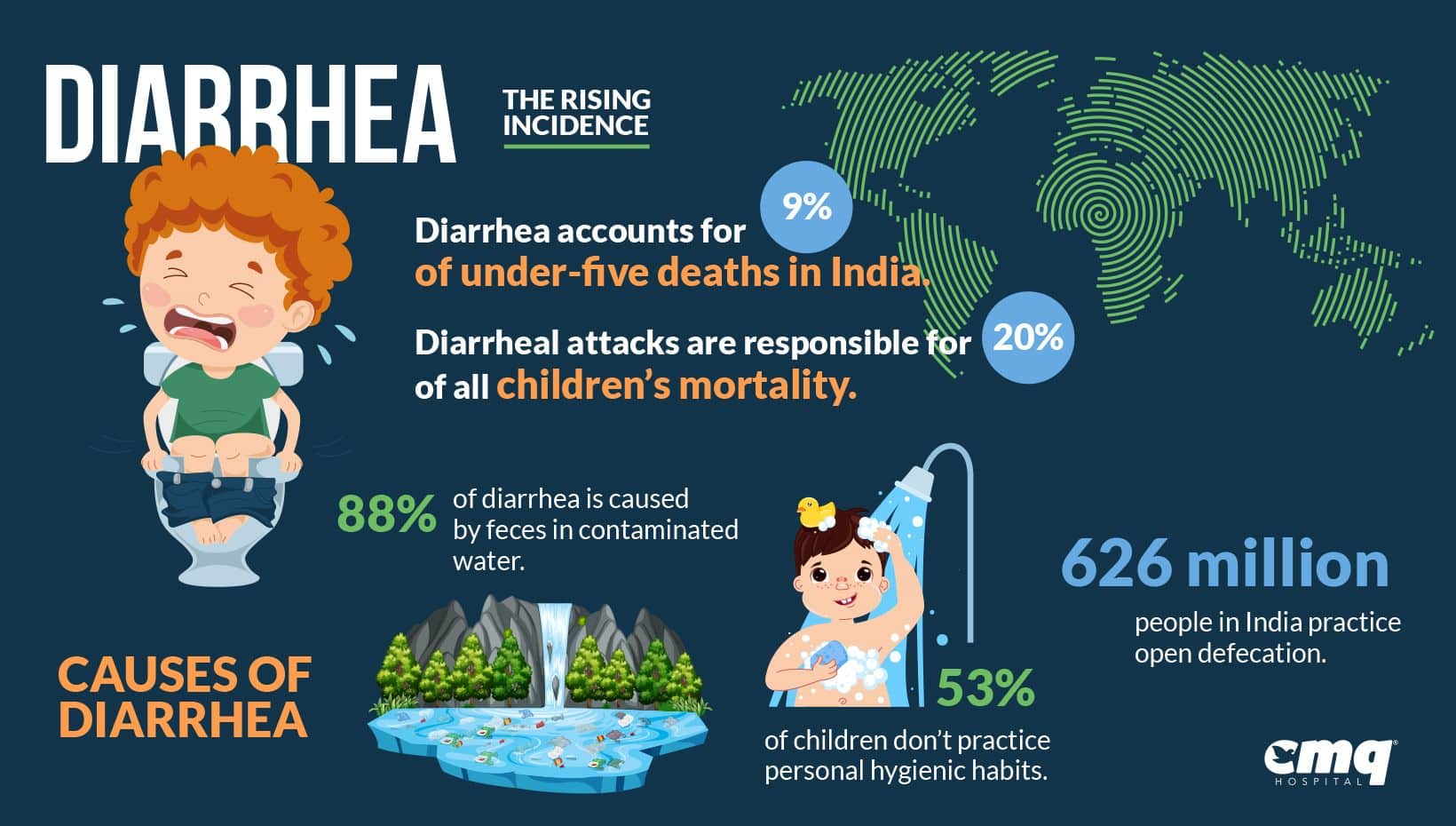What to do with Diarrhea, its treatment and medications
The truth is, we have all suffered from this pesky disease!
We’ve all had to spend endless minutes in the bathroom, trying to get rid of it. This illness is definitely annoying, and sometimes, it can even be dangerous. Diarrhea is a painful ailment that causes three or more watery and loose stools per day.
Normally, it will disappear on its own after a few days. However, if this illness continues for more than two weeks, than its considered chronic. Chronic diarrhea is a serious health condition that requires immediate medical attention.
So, what are the types of diarrhea?
Travelers diarrhea: you can get it when you travel to a place were the climate and its sanitary conditions are different than at home. Its most common causes are eating or drinking contaminated water. This illness usually starts suddenly during trips and will improve within one or two days, even without treatment.
Acute diarrhea: it is the most common type of this affection, being the second leading cause of death among children under the age of five. Acute diarrhea can last from one to several days, going away by itself. Viruses are the most common cause of this type of illness, with rotavirus being the most frequent pathogen associated with this disease.
Persistent diarrhea: this type starts acutely and lasts between two and four weeks. Persistent diarrhea accounts for 10% to 20% of all cases of diarrhea. This disease is an important cause of death in children in developing countries.
Chronic diarrhea: if you have loose or watery stools that last for at least four weeks, than you have chronic diarrhea. The causes of this disease are chronic diseases, such as inflammatory vowel disease, chronic infections and irritable vowel syndrome. Therefore, treatment of this aliment is always aimed at treating and solving the underlying chronic condition that is causing it.

What causes diarrhea?
This troublesome disease can be caused by several factors, such as bacteria, virus, medications, contaminated food or water, and certain digestive problems. Its most common causes are:
- Viral infections, such as rotavirus.
- Bacteria and parasites that enter our body through contaminated food or water.

Now that you know what causes this illness, you may be wondering, what are the symptoms of diarrhea?
As we all know, its main symptoms are frequent loose and/or watery stools. Nevertheless, these other symptoms can also be present:
- Urgent and frequent need to go to the bathroom.
- Nausea.
- Abdominal pain
- Abdominal cramps.
In addition, if this illness is caused by an infection, you could feel the following symptoms:
- Vomit.
- Blood in stool.
- Fever and chills.
- Feeling dizzy and fatigue.
Remember to see your doctor immediately, if you have diarrhea for more than four weeks, or if you experience any of the following: blood in stools, severe abdominal pain, fever and loss of weight.
Diarrhea in Children
Most kids get it every once in a while. When kids have this disease, they usually experience fever, abdominal cramps, nausea, vomit and dehydration. Some of the most common causes of diarrhea in children are viral infections such as rotavirus, bacteria such as salmonella, and parasites such as Giardia.
How can Diarrhea in children be prevented?
The rotavirus vaccine is an effective way to prevent this disease, especially among babies and little kids. Accordingly, the Centers for Disease Control and Prevention (CDC) recommend that babies should get their first shot at two months old, the second at four months old and the third vaccine at six months old.
Diarrhea in pregnant women
Diarrhea and constipation are regular digestive problems during pregnancy which can cause health complications if not properly cared for. Some causes of this ailment in pregnant women are:
- Extreme changes in dietary habits.
- Hypersensitivity to food.
- Prenatal vitamins.
- Hormonal changes.
This illness is most prevalent during the last three months of pregnancy, as the body is preparing to give birth, which can cause for diarrhea to be more frequent.
Diarrhea treatment, drugs and medications
In some cases, this ailment can be a health problem that requires immediate medical attention. In most cases, however, this disease disappears spontaneously in a couple of days without causing any health issues. Most often, it is transmitted through personal contact of contaminated hands. Due to this fact, hand hygiene is essential for avoiding this illness. Effective hand hygiene after going to the bathroom and before eating, helps to kill the pathogens that cause it.
Which medications can I take for diarrhea?
In most cases, over-the-counter medication is effective in stopping simple cases of this bothersome illness.
Popular over-the-counter medications for it are:
- Pepto-Bismol.
- Kaopectate (bismuth subsalicylate).
- Imodium (loperamide).
- Oral Rehydration Therapy (ORT).
Nevertheless, if this disease is caused by a bacterial infection, your physician will need to prescribe an antibiotic.
Appropriate antibiotics for it are:
- Azithromycin
- Ciprofloxacin
- Rifaximin
On the other hand, if it’s caused by a virus, antibiotics will not be needed.
What to eat when you have diarrhea?
Did you know that some types of food can worsen the symptoms of this illness? Due to this fact, it’s good to know what to eat when you have it, and which foods to avoid.
- When you have this ailment, you should eat bland foods such as: crackers, pretzels, hot cereals (oatmeal, rice porridge), plain white rice, bananas, boiled potatoes, bread and toast.
- Avoid eating milky, greasy and spicy foods: raw vegetables, pork meat, food with additives and processed foods, spicy foods, dairy and milk products, and greasy or fried foods.
You can also consider natural remedies for diarrhea
Drink plenty of liquids: as a rule of thumb, drink at least one glass of water every time you go to the bathroom.
Teas are your allies: Research studies suggest that herbal infusions such as Chamomile tea, can help to alleviate diarrhea’s pesky symptoms. Other effective herbal infusions are Cinnamon, Ginger and Oregano.
Yogurt and probiotics: yogurt and probiotics provide you with living and active microorganisms that help your body when struggling with this disease. Visit our nutrition section to learn more about healthy eating habits.




